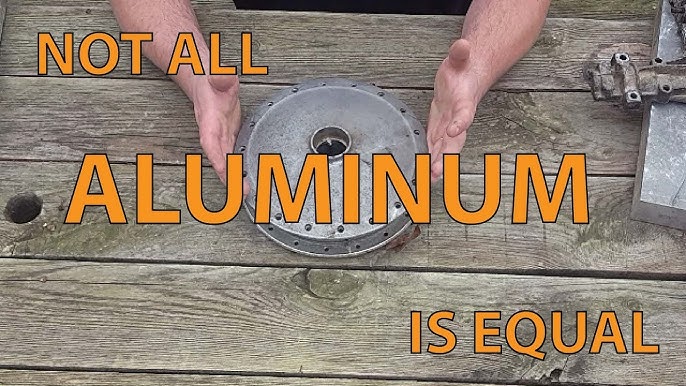The Best Strategy To Use For Stahl Specialty Company
The Best Strategy To Use For Stahl Specialty Company
Blog Article
The Only Guide to Stahl Specialty Company
Table of ContentsAll About Stahl Specialty CompanyThe Only Guide to Stahl Specialty CompanyThe Definitive Guide for Stahl Specialty CompanyThe smart Trick of Stahl Specialty Company That Nobody is DiscussingStahl Specialty Company Can Be Fun For Everyone
The refined distinction exists in the chemical web content. Chemical Contrast of Cast Aluminum Alloys Silicon promotes castability by minimizing the alloy's melting temperature and enhancing fluidity during spreading. It plays a crucial role in allowing intricate mold and mildews to be loaded properly. In addition, silicon adds to the alloy's stamina and put on resistance, making it valuable in applications where sturdiness is crucial, such as auto components and engine elements.It also boosts the machinability of the alloy, making it simpler to refine into completed items. This way, iron adds to the overall workability of light weight aluminum alloys. Copper increases electrical conductivity, making it helpful in electric applications. It also improves deterioration resistance and contributes to the alloy's general toughness.
Manganese contributes to the stamina of light weight aluminum alloys and boosts workability. It is typically utilized in functioned aluminum items like sheets, extrusions, and accounts. The existence of manganese help in the alloy's formability and resistance to breaking throughout construction procedures. Magnesium is a light-weight component that provides toughness and influence resistance to aluminum alloys.
It permits the manufacturing of light-weight elements with exceptional mechanical residential properties. Zinc boosts the castability of light weight aluminum alloys and assists control the solidification process during casting. It boosts the alloy's toughness and solidity. It is usually located in applications where detailed forms and great information are required, such as ornamental castings and certain automobile components.
Stahl Specialty Company - Questions
Since aluminum-silicon alloys have great spreading homes, high gas residential or commercial properties, simple processes, and excellent deterioration resistance, aluminum-silicon alloys are most typically used in the die-casting market in the house and abroad. At the exact same time, aluminum-silicon alloys are additionally fairly very early and widely acknowledged alloys developed and utilized in die-casting. After continual research study and improvement, the majority of the existing worldwide mainstream aluminum-silicon alloys have been finalized and are absolutely nothing greater than A356, A360, A380, ADC12, B390, and A413.
The main thermal conductivity, tensile stamina, yield stamina, and elongation vary. Amongst the above alloys, A356 has the highest thermal conductivity, and A380 and ADC12 have the cheapest.

The 20-Second Trick For Stahl Specialty Company
In precision spreading, 6063 is fit for applications where elaborate geometries and high-grade surface coatings are vital. Instances consist of telecommunication rooms, where the alloy's superior formability enables for sleek and visually pleasing styles while keeping architectural integrity. In the Lights Solutions sector, precision-cast 6063 components create elegant and efficient lighting fixtures that require elaborate shapes and great thermal performance.
(https://www.cybo.com/US-biz/stahl-specialty-company_1P)
The A360 exhibits remarkable prolongation, making it optimal for facility and thin-walled components. In accuracy casting applications, A360 is appropriate for sectors such as Consumer Electronic Devices, Telecommunication, and Power Devices.

In precision spreading, aluminum 413 beams in the Consumer Electronic Devices and Power Tools markets. This alloy's superior rust resistance makes it an outstanding selection for outdoor applications, making certain lasting, sturdy products in the pointed out industries.
Stahl Specialty Company Things To Know Before You Get This
The aluminum alloy you select will significantly affect both the spreading process and the properties of the last item. Since of this, you need to make your decision thoroughly and take an informed approach.
Identifying the most ideal aluminum alloy for your application will mean evaluating a large variety of attributes. The initial classification addresses alloy characteristics that influence the manufacturing process.
The alloy you choose for die casting straight impacts numerous elements of the spreading procedure, like just how very easy the alloy is to deal with and if it is vulnerable to casting problems. Hot breaking, also called solidification fracturing, is a regular die spreading flaw for light weight aluminum alloys that can lead to internal or surface-level splits or splits.
Some Known Incorrect Statements About Stahl Specialty Company
Particular aluminum alloys are more prone to warm splitting than others, and your option should consider this. Another common defect found in the die casting of aluminum is die soldering, which is when the cast sticks to the die walls and makes ejection tough. It can harm both the cast and the die, so you ought to look for alloys with high anti-soldering buildings.
Corrosion resistance, which is currently a noteworthy quality of aluminum, can vary considerably from alloy to alloy and is a vital characteristic to think about depending upon the environmental problems your item will be subjected to. Use resistance is an additional residential or commercial property generally looked for in light weight aluminum items and can differentiate some alloys.
Report this page